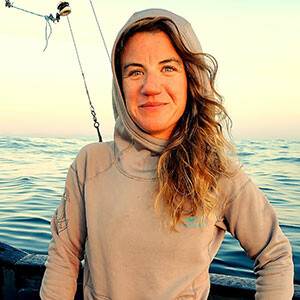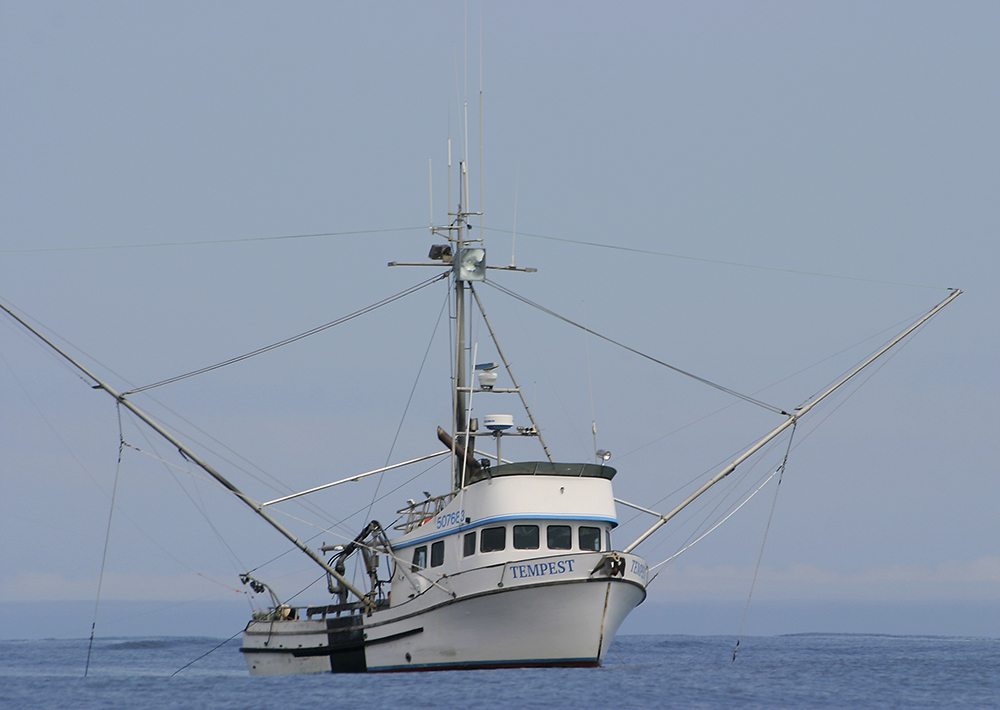March is usually a time of bustle and activity on the port docks of the Oregon Coast. Salmon fishermen return to the docks to ready their trollers. Crabbers with salmon permits begin the process of transforming their boats for the upcoming season. Hay racks arrive, gurdies are put on, hydraulic lines are reconnected, and crab tanks removed.
Everywhere fishermen are exchanging news of season openers, which hoochies and spoons they think will be hottest, what the price might be, and where they believe the salmon will show up first. Spring comes with renewed promise as crab harvest has slowed down and the excitement of chasing Chinook salmon takes hold.
That most likely won’t be happening for most of Oregon, and all of California this year. The Pacific Fishery Management Council released the season alternatives for the Chinook salmon season in California, Oregon, and Washington this week. These three alternatives are released each year for consideration, with each one presenting a different season structure, before the season is set, giving fishermen a chance to voice their preferences in regards to opener lengths, which months typically offer better fishing, and conflicts with other fisheries.
As fishermen had feared, following the presentations at the Oregon Deoartment of Fish and Wildlife Salmon Commission meeting on Feb. 27, and the CDFW meeting on March 1, which showed catastrophically poor returns in the Klamath and Sacramento Rivers, and low projections for 2023, each of the alternatives that have been offered for consideration confirm the worst; commercial salmon season may be closed on all but the most northern tip of the Oregon coast until Sept. 1, and it may not open at all in California.
Final decisions will be made on April 7 at the PFMC meeting, however in light of the fact that no alternative has been given that would allow for a salmon season south of Cape Falcon, there is little hope for an opportunity. In addition, fishermen were informed on Thursday that the spring season, from March 15 to May 15, will be closed this year. This early season was set by the PFMC last year with the option for reconsideration and adjustment during this year’s council meetings. That they have made such an adjustment is telling.
After Sept. 1, salmon caught in Oregon are known as “credit card fish” and do not count towards the impacts of the current calendar year but are taken from the following year’s allowable impact. The Washington season, which has little to no impact on the decimated fish populations of the struggling California rivers, stands set to open as usual. Salmon fishermen in Oregon are now seeking out Washington permits for sale or lease in the hopes that they might still have a season, even if they have to go north.
Salmon seasons are considered and formulated each year based on the lowest stock, meaning that they are set with the intention of avoiding impacts to the river with the most struggling salmon population. In recent years, Oregon fishermen have struggled for years through cuts to their seasons as efforts have been made to maximize escapement to the Klamath and Sacramento Rivers. As Eric Schindler, leader of the ODFW Ocean Salmon Management Project, stated in the ODFW meeting, “risk aversion is the goal.”
Despite these efforts to avoid further harm to the affected river populations, extreme drought years have taken their toll, along with anthropogenic processes. They have caused higher river temperatures, decreased flow, and smaller habitat sizes in crucial areas of the river that must remain viable to support the salmon.
The worsening situation reflected in the decreasing salmon returns and escapements caused fishermen’s associations in California to issue a joint statement last week calling for the immediate closure of the California salmon season, and the issuance of disaster relief, in an effort to ensure that the salmon populations do not completely collapse.
Oregon fishermen will likely be seeking the same disaster relief as they struggle to find an alternative stream of income for the spring and summer if the salmon season is closed.
What is usually an exciting and hopeful time of year on the docks of Oregon has quickly turned into one of disbelief and dismay over the future of the salmon fishery and the future of the fishermen’s livelihoods. Salmon fishermen who rely heavily on a fiscally rewarding season will have to look elsewhere, if they can, for the income they need to survive, pinning their hopes on spring crab, black cod, halibut, and albacore, or working on another boat while their own remains tied to the dock.








